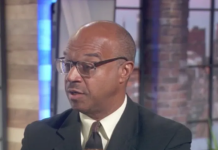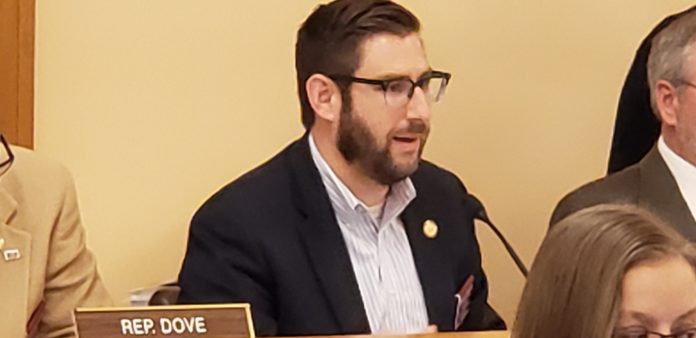Democratic state Rep. Brett Parker late Tuesday pulled out of the race for assistant House minority leader, and threw his support to Rep. Jason Probst.
Parker, who worked to help elect Democrats to the House in the last election cycle, said he thought Probst would be able to help the party gain back ground it lost this year in Pittsburg, Newton, and Leavenworth.

Rep. Monica Murnan lost her reelection bid to the House in Pittsburg, Rep. Tim Hodge failed to get reelected in Newton and the Leavenworth seat held by Rep. Jeff Pittman was won by Republican Pat Proctor. Pittman was elected to the Senate.
“Having spoken with Rep. Probst several times about the work ahead, I am convinced that he is in a unique position to accomplish what needs to be done,” Parker wrote in a letter that went out late Tuesday night.
“In an election where Democrats lost ground in Newton, Pittsburg, and Leavenworth, Rep. Probst was able to win in Hutchinson while outperforming Joe Biden by 23%.
“As a journalist, Rep. Probst is uniquely suited to help our caucus articulate our values to voters,” he wrote.
At one point, it had been speculated that Parker, who represents Overland Park, might run for minority leader against state Rep. Tom Sawyer. But that never materialized and Sawyer is unopposed for the leadership position.

Parker’s withdrawal leaves Probst running against state Rep. Valdenia Winn, who has served in the Legislature for 20 years and was just reelected to an 11th term in Kansas City, Kansas.
Probst, running in a Reno County district carried by President Donald Trump in 2016, had his own close race this year. He edged Republican Jason Whitesel by 31 votes.
He was one of nine Democratic House members who national Republicans targeted this year because they represented districts won by Trump in 2016.
Reflecting on the general election results, Parker said Democrats need to reach voters outside the state’s urban areas.
“I have come to believe that it is imperative that we do three things: connect with voters outside the largest population centers, clearly and persistently communicate a central message to voters, and build on existing relationships across the aisle to serve as a bipartisan check on the extremism of GOP leadership.”
















